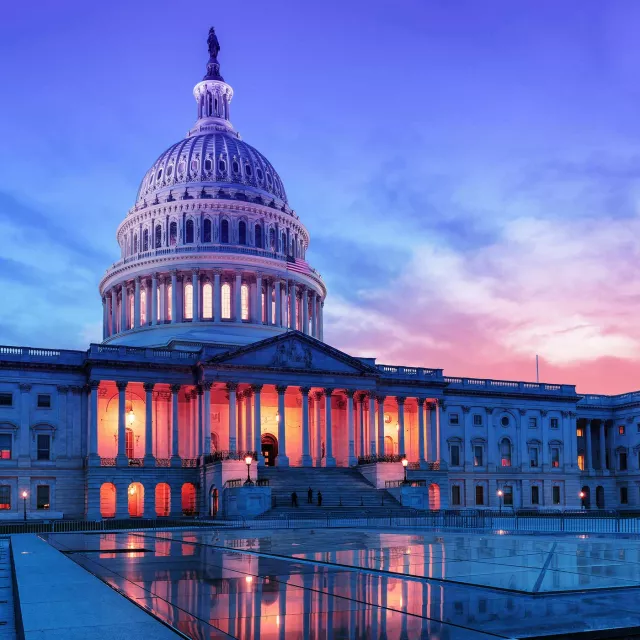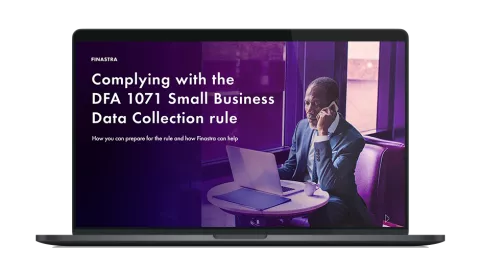LEGAL UPDATE: On November 12, 2025, the CFPB issued a proposed rule which, if finalized, will make substantial revisions to the ECOA small business lending rule. This proposal would narrow the scope of institutions and loans subject to the rule, the number small businesses subject to the rule, the number of data fields to be collected, and would propose a new universal effective data for all lenders of January 1, 2028. Finastra is continuing to monitor this proposal, as well as the ongoing litigation challenging the CFPB's original 1071 rule and will make updates to its SBDC solution as necessary.
Finastra's 1071 solution provides answers to the rule's complexity
Finastra's comprehensive solution will give you confidence that you will meet the exacting requirements of the 1071 rule, no matter your institution's size or loan volume
Data collection
Finastra's solution efficiently collects required data from your small business customers through an intuitive and user-friendly interface.
Data accuracy
Data collected in the Finastra user interface is automatically validated using the CFPB’s warning and error validations, helping maintain an efficient data cleaning process.
Data submission
Generate required annual data submissions to the CFPB in the prescribed format using a simple automated process.
Data re-use
Save time and inconvenience to your customers by automatically searching for and using reusable data as permitted under the Equal Credit Opportunity Act (ECOA).




What the 1071 small business lending rule means
The Consumer Financial Protection Bureau (CFPB) has published the rule addressing Section 1071 of the 2010 Dodd-Frank Act (DFA), which places extensive disclosure, data collection, data reporting, and data firewall requirements on financial institutions for certain transactions made to small businesses. The 1071 small business lending rule is designed to assist the CFPB in bringing fair lending to small business lending, and to enable the identification of business and community development needs and opportunities for women-owned, LGBTQI+-owned, and minority-owned small businesses.
This long-awaited final rule amending the Equal Credit Opportunity Act’s (ECOA) implementing Regulation B will have wide-ranging impacts on commercial small business lenders and the time to start preparing for it is now.
View SBDC FAQs View infographic View SBDC factsheet View Originate and SBDC factsheet
The aims of 1071



Fair lending practice
By requiring financial institutions to collect and report demographic data on small business borrowers, the 1071 small business lending rule will address lending disparities and ensure that all businesses have equal access to credit.
Regulatory compliance
Financial institutions must comply with the 1071 small business lending rule to avoid potential regulatory penalties, which could include fines or other enforcement actions.
Transparency and accountability
The collected data will help regulators and policymakers better understand the lending landscape, identify patterns of discrimination, and develop strategies to promote financial inclusion.

Types of small businesses to be identified by the 1071 small business lending rule will include:

Compliance is a founding priority of every Finastra Retail Lending product across commercial, consumer, and mortgage software
Additional resources to support your success
Frequently Asked Questions
Let's talk about 1071 and compliance
Learn more about 1071 and sign up to receive notifications and publications to assist your compliance journey. We can also share how Finastra's compliance-guaranteed LaserPro product suite can ensure your loan documents meet both state and Federal requirements.
Collecting small business lending data under Section 1071 is a critical step toward ensuring fair access to credit.



